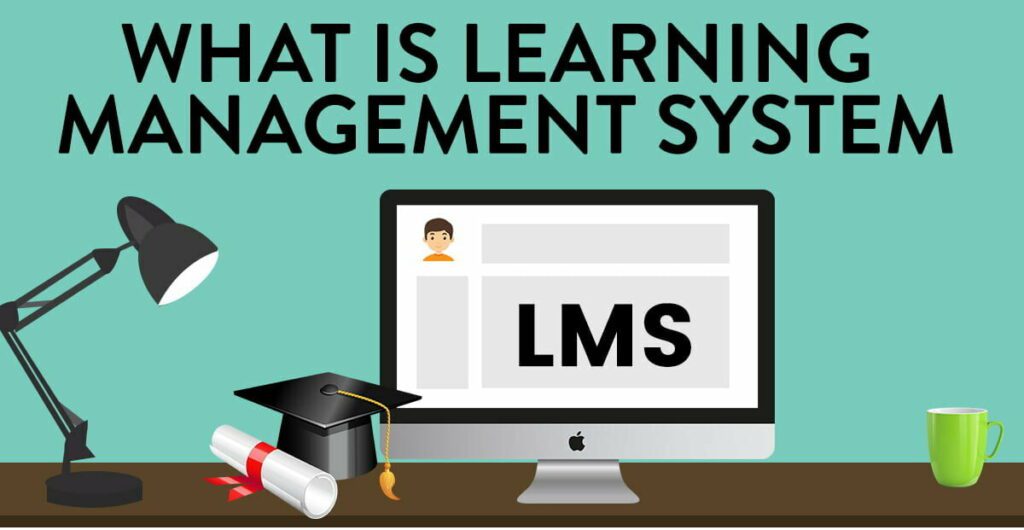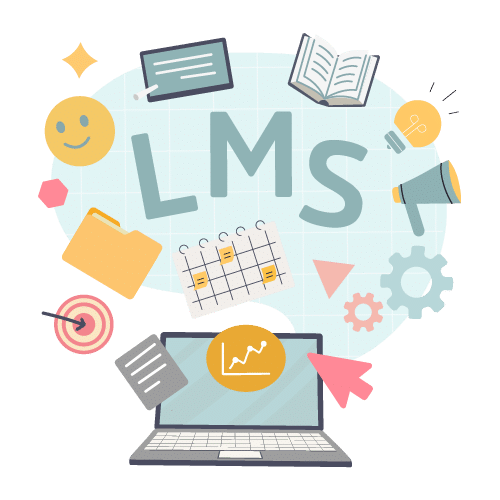Selecting the most effective Learning Monitoring System for Your Organization
Choosing the optimum Learning Administration System (LMS) for your organization is a multifaceted decision that calls for cautious consideration of different components. As companies make every effort for performance and development, the choice of an LMS becomes increasingly substantial.
Specify Your Understanding Purposes
Defining clear learning objectives is essential for the effective execution of a Knowing Administration System (LMS) These purposes act as a roadmap, directing the development of material, evaluations, and general instructional methods within the LMS. By establishing particular, measurable, possible, pertinent, and time-bound (CLEVER) objectives, organizations can guarantee that the knowing experiences are lined up with their calculated goals and student needs.
Efficient learning purposes must encapsulate what students are anticipated to understand or be able to do upon conclusion of a training course or training program. This quality not only aids in material creation however likewise facilitates the analysis of learner development and the total effectiveness of the LMS. LMS Singapore. Well-defined objectives allow stakeholders to assess whether the selected LMS attributes and capabilities straighten with their educational goals.
Assess Customer Experience
Once finding out objectives have been established, reviewing individual experience comes to be a crucial next step in choosing a suitable Learning Monitoring System (LMS) Individual experience includes the general satisfaction and ease with which learners communicate with the system. A properly designed LMS must assist in intuitive navigating, guaranteeing that individuals can locate courses, products, and support easily.
To assess individual experience, think about performing usability testing with a representative sample of end-users. Secret elements to examine include the LMS's user interface style, availability features, mobile compatibility, and the clearness of instructions offered.
In addition, evaluate the schedule of support sources, such as tutorials and aid facilities, which can enhance the customer experience. The responsiveness of consumer assistance is also crucial; prompt support can substantially mitigate aggravations that individuals might run into. Inevitably, selecting an LMS that prioritizes individual experience not just enhances the finding out process however also cultivates higher interaction and contentment among students.

Evaluate Assimilation Capabilities
Acknowledging the relevance of seamless functionality, evaluating assimilation abilities is vital when choosing a Discovering Management System (LMS) A reliable LMS must help with interoperability with existing systems, such as Personnel Administration Solution (HRMS), Client Connection Monitoring (CRM) platforms, and various other instructional tools. This combination enhances data circulation, decreases administrative worries, and ensures a cohesive learning setting.
When examining an LMS, consider the types of combinations offered. Try To Find Application Programs User Interfaces (APIs), Single Sign-On (SSO) capacities, and pre-built adapters that simplify assimilation processes. Additionally, validate the LMS's ability to integrate with third-party tools, such as material libraries or assessment platforms, which can dramatically improve the discovering experience.

Take Into Consideration Scalability and Adaptability
As companies evolve, the capability of a Discovering Administration System (LMS) to range and adapt becomes increasingly crucial. A scalable LMS can fit growth in customer numbers, training course offerings, and material without compromising efficiency or user experience. As organizations increase, whether via raised workers, brand-new areas, or varied training needs, the LMS ought to seamlessly expand together with these changes.
Flexibility is just as essential; a reliable LMS has to sustain different finding out methods, such as online, blended, and mobile knowing. This adaptability allows organizations to react swiftly to emerging patterns in training and development, guaranteeing that they can offer relevant and appealing understanding experiences - Learning Management System Singapore. look at this site Additionally, the system needs to give personalized features, allowing organizations to customize the LMS to their details demands and branding
Furthermore, a versatile LMS should integrate quickly with existing platforms and tools, facilitating a natural learning community. Therefore, when choosing an LMS, it is essential to assess not only its current capabilities but likewise its prospective to adapt and grow abreast with the company's critical objectives and advancing discovering needs. This insight can substantially boost the long-lasting viability of the selected LMS.
Evaluation Prices and Budgeting
When examining a Learning Management System (LMS), examining expenses and budgeting is vital to guarantee that the investment lines up with the organization's economic capabilities and calculated purposes. Organizations must begin by determining the complete cost of ownership, that includes licensing fees, execution costs, upkeep, and any kind of added expenses such as training and technological assistance.
It is crucial to compare numerous LMS options, as pricing models can vary considerably among suppliers. Some systems may supply a subscription-based design, while others may charge an one-time fee. Organizations should also think about the scalability of the LMS; as they expand, the cost structure might alter, impacting long-lasting budgeting.

Conclusion
Picking a suitable Learning Monitoring System (LMS) is important for accomplishing business knowing goals. A comprehensive evaluation of user experience, integration abilities, scalability, and monetary factors visit this web-site to consider guarantees that the chosen LMS lines up with calculated objectives and learner needs. By systematically attending to these factors, companies can enhance finding out outcomes, help with seamless operations, and assistance future development. Eventually, the appropriate LMS works as a critical tool in promoting an efficient discovering environment and driving organizational success.
Choosing the optimal Learning Monitoring System (LMS) for your company is a complex choice that needs careful factor to consider of different components.Defining clear discovering purposes is crucial for the successful execution of a Knowing Administration System (LMS)Once learning purposes have been developed, assessing user experience ends up being a crucial following action in picking a proper Learning Administration System (LMS)As companies progress, the capability of an Understanding Administration System (LMS) to range and adjust ends up being significantly essential.Picking a suitable Discovering Monitoring System (LMS) is important for my sources achieving business knowing goals.